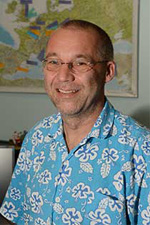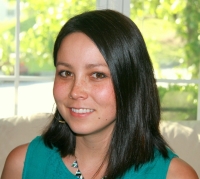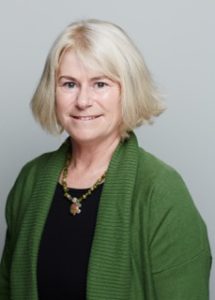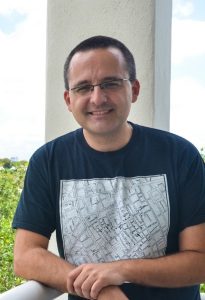Ihaka Lectures – videos for your viewing pleasure
We’re three weeks into the month-long Ihaka Lecture Series, and it has been well received – thank you to those who have turned up in person and online.
 Our final speaker, Robert Tibshirani, right, is up on Weds April 3 at the University of Auckland (details here). Robert is Professor of Statistics and Biomedical Data Science at Stanford University.
Our final speaker, Robert Tibshirani, right, is up on Weds April 3 at the University of Auckland (details here). Robert is Professor of Statistics and Biomedical Data Science at Stanford University.
He is best known for proposing the ‘lasso’, a sparse regression estimator, and describing its relationship to the idea of boosting in supervised classification. He will talk about modern sparse supervised learning approaches that extend the lasso.
In the meantime, you might like to check out the films of the last three spea kers. First up on March 13 was by Bernhard Pfahringer, left, who is Professor of Computer Science at the University of Waikato.
kers. First up on March 13 was by Bernhard Pfahringer, left, who is Professor of Computer Science at the University of Waikato.
He is a member of the Weka project, New Zealand’s other famous open-source data science contribution, and here talks about the design and development of Weka and more recent projects.
 Next was supposed to be JJ Allaire, the founder and CEO of RStudio, and the author of R interfaces to Tensorflow and Keras. However, ill-health prevented him coming, and our very own Professor Thomas Lumley stepped in.
Next was supposed to be JJ Allaire, the founder and CEO of RStudio, and the author of R interfaces to Tensorflow and Keras. However, ill-health prevented him coming, and our very own Professor Thomas Lumley stepped in.
Thomas talked entertainingly about deep learning, in particular how deep convolutional nets are structured and how they can be remarkably effective, but can also fail, as he puts it, “in remarkably alien ways”.

Following was Dr Kristian Lum, Lead Statistician at the Human Rights Data Analysis Group. Her research has concretely demonstrated the potential for machine learning-based predictive policing models to reinforce and, in some cases, amplify historical racial biases in law enforcement.
She talked about algorithmic fairness, and about ways in which policy, rather than data science, influences the development of these models and their choice over non-algorithmic approaches.
 tion.
tion. Auckland (left) will embark on a daring statistical graphics journey featuring the BrailleR package for visually-impaired users, high-performance computing, te reo, and XKCD.
Auckland (left) will embark on a daring statistical graphics journey featuring the BrailleR package for visually-impaired users, high-performance computing, te reo, and XKCD.  Professor in the Department of Statistics at the University of Auckland. Ross, along with Robert Gentleman, co-created R – a statistical programming language now used by the majority of the world’s practicing statisticians. It is hard to over-emphasise the importance of Ross’s contribution to our field, so we named this lecture series in his honour to recognise his work and contributions to our field in perpetuity.
Professor in the Department of Statistics at the University of Auckland. Ross, along with Robert Gentleman, co-created R – a statistical programming language now used by the majority of the world’s practicing statisticians. It is hard to over-emphasise the importance of Ross’s contribution to our field, so we named this lecture series in his honour to recognise his work and contributions to our field in perpetuity.